-
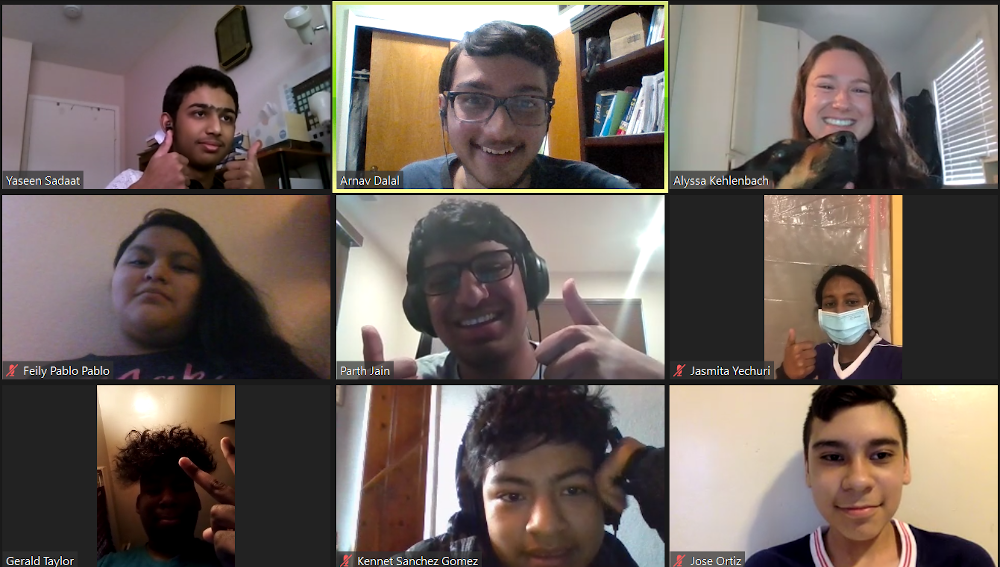
STEM4KIDS
STEM4Kids was founded with a mission of expanding the world of STEM to those in our community to those who are underprivileged. Through weekly lessons over the course of a year, we taught the students concepts that paralleled their school curriculum in hopes of helping them improve their academic performance. The program’s curriculum covered foundational knowledge in biology, physics and chemistry, taught through both a lecture followed by lab activities. MVRT currently measures knowledge retention through surveys and short game quizzes, however, in the future as we filter through more groups of students, we hope to collect data centering around grade improvement because of the program’s initial goal. Through this program, we hope to expand our mission to help provide equal opportunities to everyone in our community.
-

Sisters in STEM
Sisters in STEM (SiSTEM) is a program founded by our female veterans in 2016 to combat the lack of girls in STEM and encourage more females to join the team. Many girls felt discouraged to be a part of the team, especially in the engineering divisions, and MVRT often experienced low retention rates of female members. MVRT recognized the gender gap and difference in opportunities that currently exists in engineering fields and provided a solution to the problem: the SiSTEM initiative. With this program, we have had an 80% increase in female attendance and member retention and an increase in overall team morale. We include male veterans to take part in mentoring the little siblings, along with female rookies, to encourage both genders to learn how to work together and bridge any disconnect present in the past. With more people involved in our design and execution, our team has improved as a whole, as has our community.
-
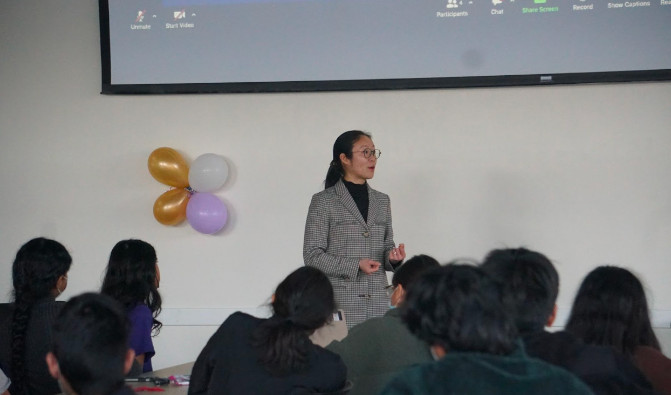
Equity Workshops

In order to supplement the SiSTEM program, MVRT annually hosts symposiums in which we invite women in STEM to share how they overcame obstacles within their STEM journeys. To host these symposiums, MVRT partners with Polygence, a research program where intellectually curious high schoolers connect with expert mentors to conduct passion projects. Under the guidance of their mentors, Polygence students engage in academic fields across the STEM, the social sciences, and the humanities to produce showcase-able and personalized final projects. MVRT and Polygence are proud partners and our partnership has enabled Polygence to offer all MVHS students 10% financial assistance to pursue their very own Polygence project. More info here.
-
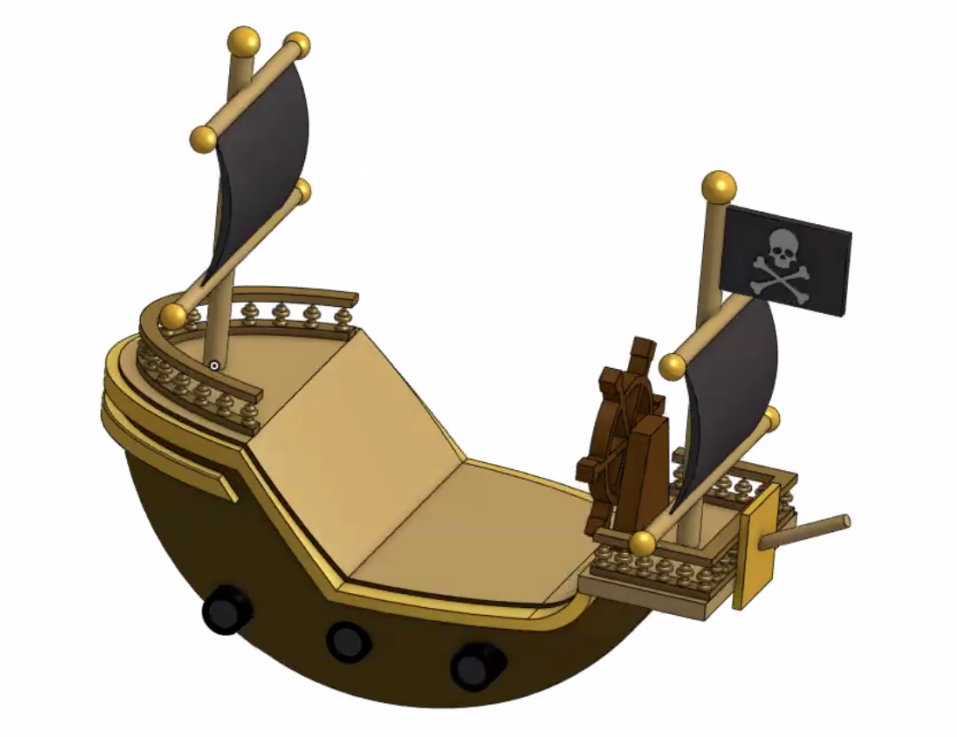
CADology
CADology was founded at the aim of instilling a passion for robotics in elementary through middle school aged students using personalized and interactive classes. The students develop a foundational knowledge in computer aided design (CAD), an essential skill to build a robot, in an engaging and non-intimidating way with the help of our members. Students are broken up into groups by skill and experience with MVRT members, and learn how to CAD at a pace most comfortable for them. As an end project, students are able to see the outcome of their work by 3D printing their own model!
-

Taiwan
MVRT invited over 25 international students during the summer of 2016 to tour our facilities and learn about the FIRST Robotics Competition. Then in early 2017, we invited a new group of 30 international students to tour Monta Vista once again. MVRT also held a demo for the Taiwan Exchange Students. We are now supporting them as they start their own FRC team. The team is currently meeting on a daily basis based on the coach’s responses and has had a successful kickoff. They are meeting for Build Season and we are in constant contact with them for them to be ready for this season. MVRT has also invited 25 new international students during the season this year to tour our facilities. We hope to continue a strong relationship and have them visit our facility every year and host a demo.
-
France Collaboration
In 2023, MVRT visited a summer daycare in rural Saint Gérand, France, to introduce STEM concepts to kids aged 5–9. They led a spaghetti and marshmallow tower challenge, teaching structural engineering basics through hands-on teamwork. Students were grouped and guided through a simple design process, deciding how much material to use for their towers. They enjoyed the freedom to experiment and problem-solve with the unique materials. This engaging activity sparked curiosity and introduced STEM to students who may not have had prior exposure, making it a fun and educational experience that encouraged collaboration and creativity.
-
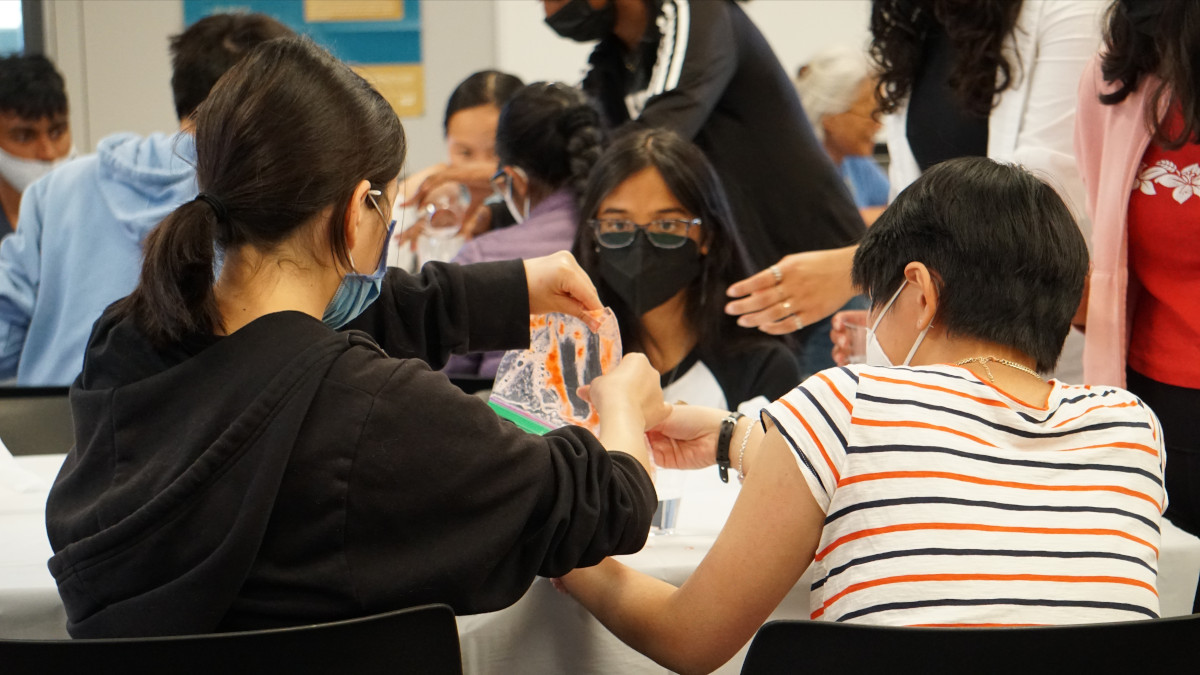
Ohana
MVRT formed a partnership with the Ohana Club, a club at Monta Vista dedicated to providing special education students with as many skills as possible, to teach students STEM concepts in an interactive, hands-on way. Throughout the years, our curriculum has evolved and improved based on feedback from both the Ohana students and the Ohana officer team. The program was founded in 2012 and has grown to have over 60 special education students participating in the program.
-
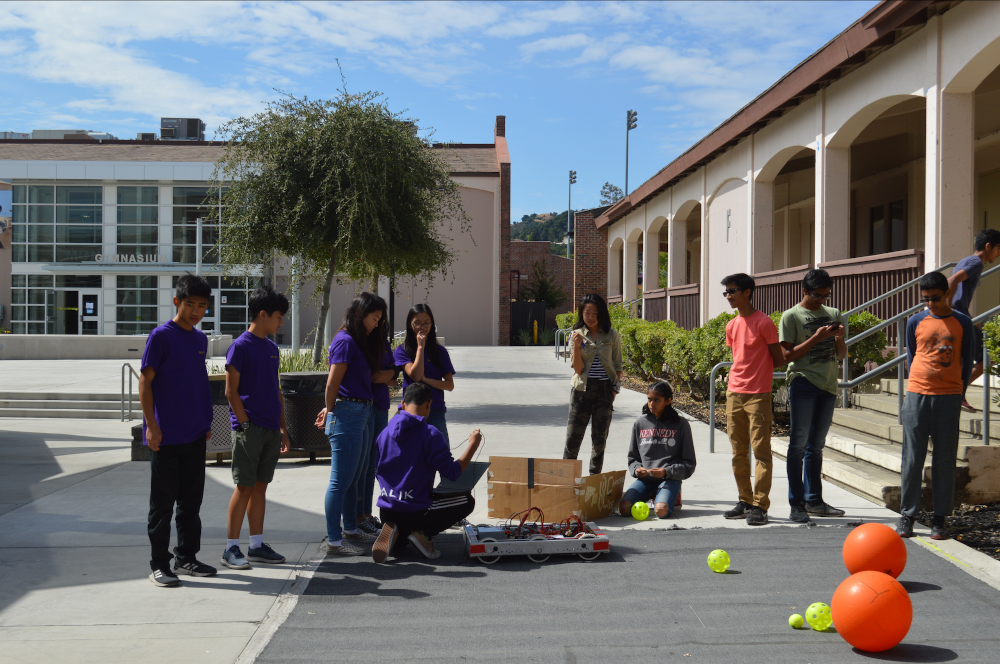
HeadStart
MVRT’s HeadStart Summer Camp was launched in 2016 to build a strong engineering foundation for rookie members. Over the course of the week-long camp, rookies are taught the fundamentals of FRC engineering to assemble a kitbot, culminating in a design challenge and a friendly competition. HeadStart is entirely student designed, organized, and taught. Students involved in running HeadStart are able to develop critical skills ranging from teaching to event management. Incoming members are able to also befriend upperclassmen in the team, forming relationships that go a long way. Although HeadStart is designed to help create a foundation for incoming rookies, HeadStart is open to anyone interested in jump starting their FIRST Robotics Journey.
-
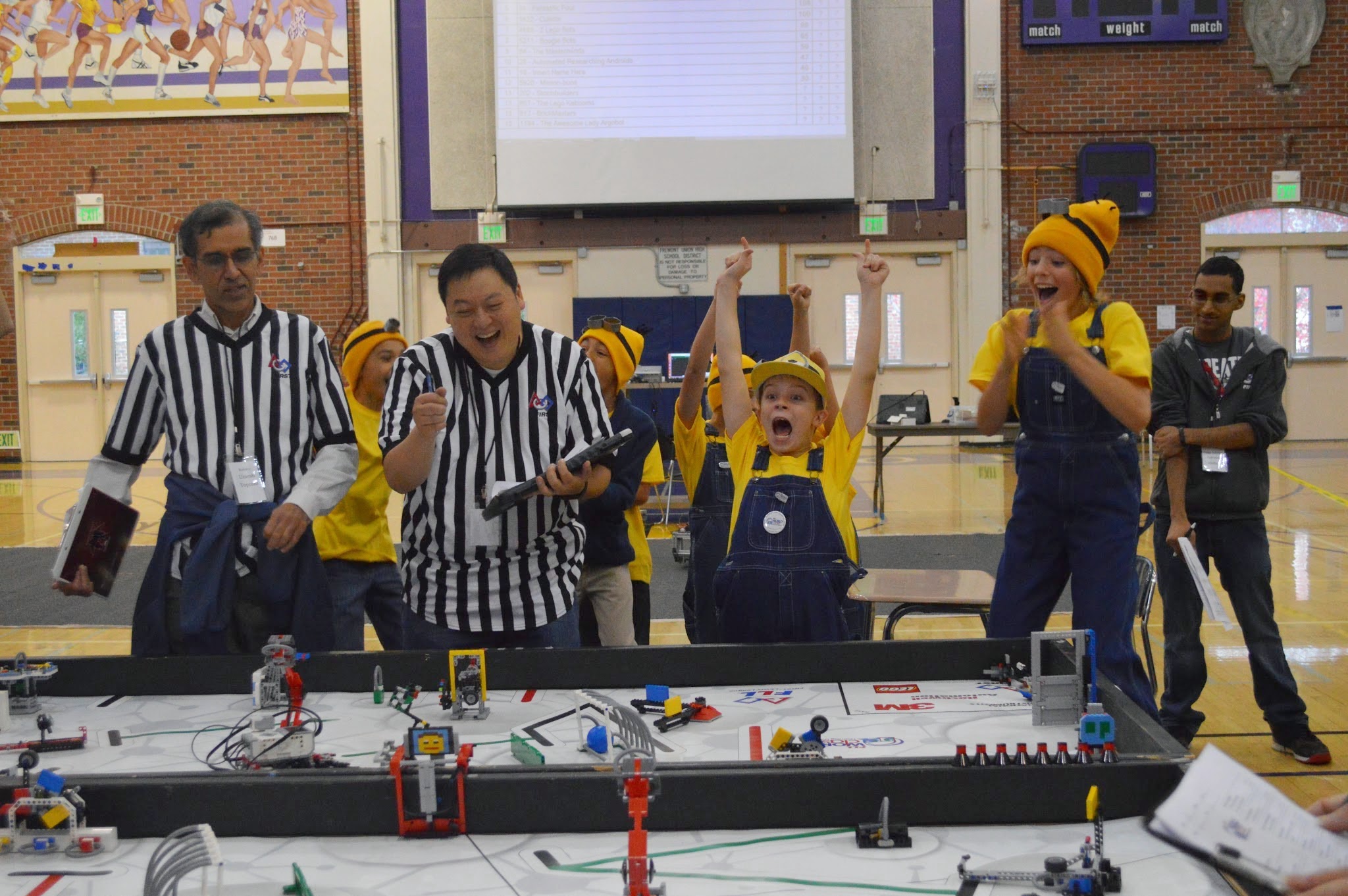
FIRST LEGO League (FLL)
FLL is a program that MVRT sponsors for middle school kids interested in STEM. MVRT members have mentored 60 FIRST LEGO League (FLL) teams since 2003. Through FLL, our members teach students engineering and robotics skills. Our FLL students develop skills essential to flourish in the FIRST Robotics Competition, including team management, leadership, and communication, while their coaches develop mentorship skills that can be applied to their activities on our team.
-
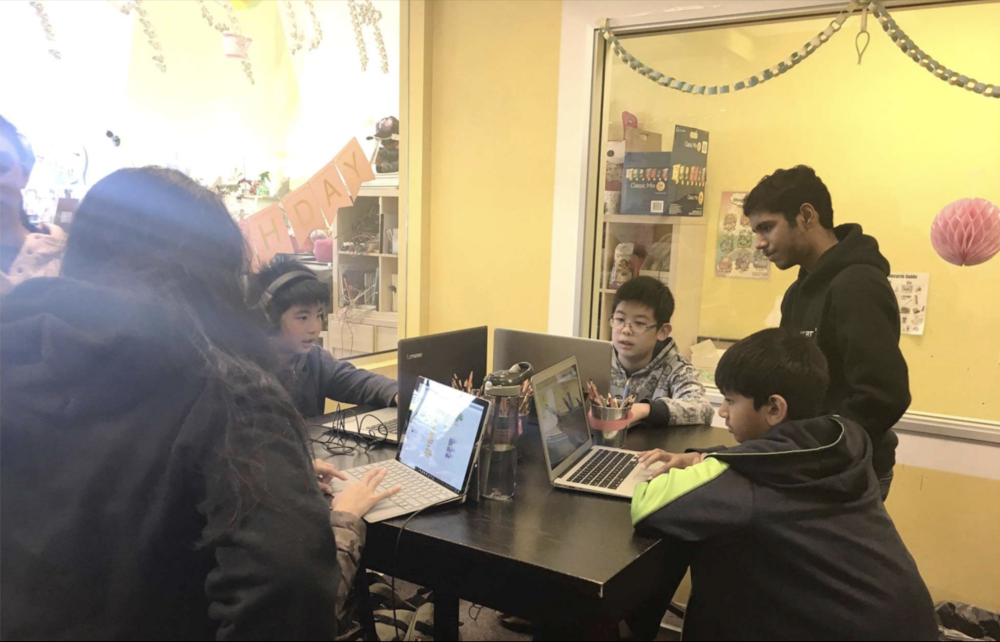
Hongyun Art
One of our most unique and innovative outreach programs is Hongyun Art—a series of classes based on teaching kids STEM through art. MVRT worked with Hongyun Art, an art studio, by hosting camps for students and weekly lessons. Using Java, Scratch, Python and Arudionos, students participate in several interactive art projects, such as building an interactive mirror. Overall, the partnership is fulfilling to both sides, as MVRT students are able to gain insight in art and creativity while Hongyun Art students can learn STEM skills.
-
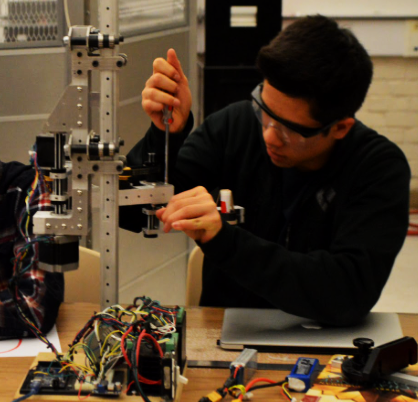
Google Arm & Intel RealSense Camera
MVRT students have been given the opportunity to apply their knowledge from FIRST to the real world by working as professional engineers alongside Google and Intel employees. Our members worked with Google to build a robot arm to play tic tac toe, and through extensive testing, we helped Google restructure their APIs. Likewise, we beta-tested Intel’s real-sense camera in 2018, which was aimed to help FRC teams in the future. While our strong relations with our sponsors have helped provide more opportunities for our own members, we additionally strive to help our sponsors with their own projects, just as they have for us.
-

Mali
Through our partnership with iNerde, an organization that aims to spread STEM education in Africa, MVRT helped iNerde to reach 133% of their annual goal for students impacted. While researching iNerde, MVRT learned that they were creating a FIRST Global Challenge robotics team in Bamako, Mali, and were looking for more mentors. MVRT stepped in and provided a comprehensive curriculum for trainings along with a 24/7 support-line for their team. MVRT taught Team Mali about the fundamentals of running a FRC team but also basic engineering skills using an adaptation of the 3-month training plan MVRT uses for our rookie trainings. At the end of the FIRST Global competition, Team Mali ended up winning the silver medal Engineering Design.
-
Bloom
View more partnership information: learnwithbloom.org